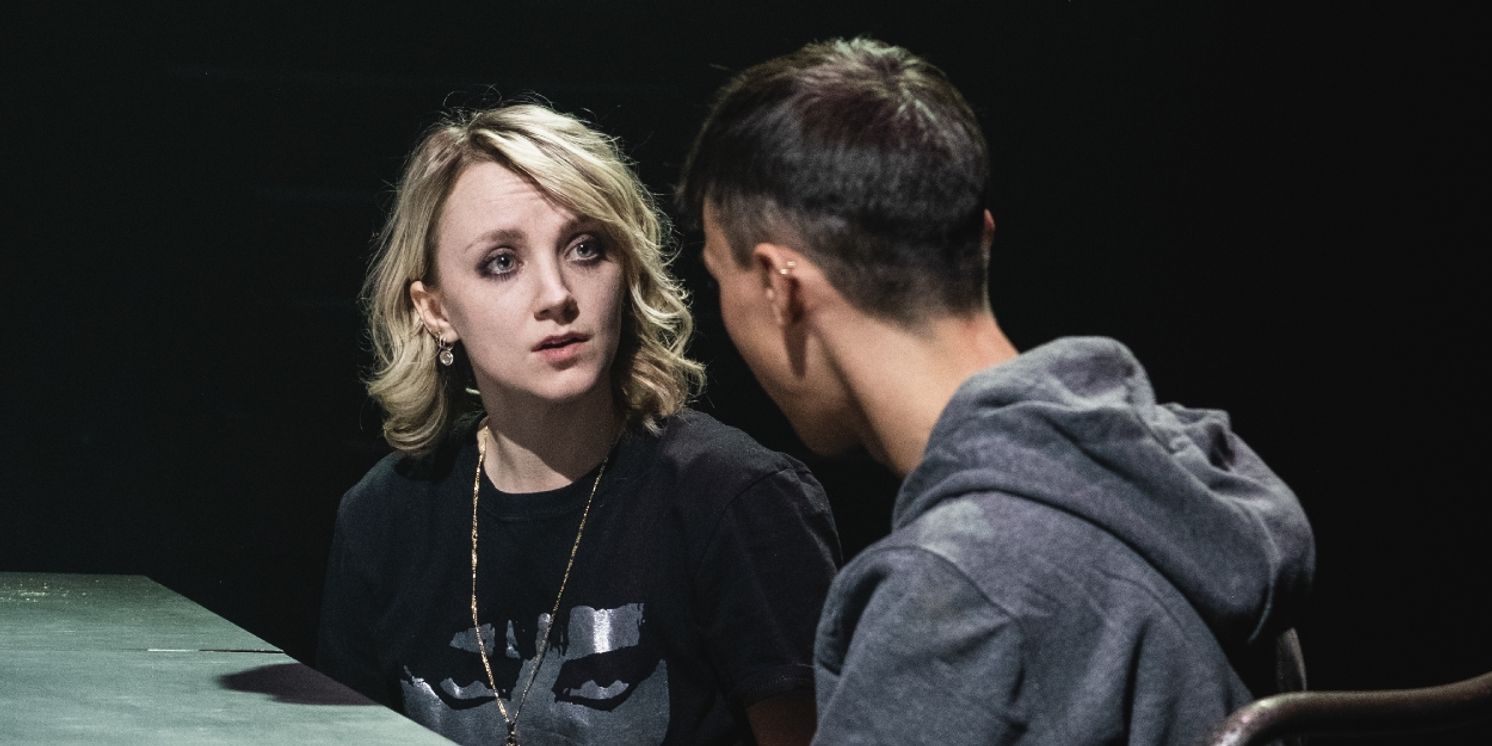Review: UNDER THE BLACK ROCK, Arcola Theatre
Starring Evanna Lynch, this new play on the Troubles is infused with striking visuals but doesn't fully hit the mark.

![]() It's the height of the Troubles in Northern Ireland and "The history of peace must be written in blood". Suspicion runs like wildfire and bodies are dropping left and right at the hand of the two factions. Much to her mother's displeasure, Niamh's family has IRA affiliations. Her father thinks very little of her and her younger brother is their parents' pawn. To prove to herself and the world that she too can help her people, she gets embroiled in the conflict firsthand.
It's the height of the Troubles in Northern Ireland and "The history of peace must be written in blood". Suspicion runs like wildfire and bodies are dropping left and right at the hand of the two factions. Much to her mother's displeasure, Niamh's family has IRA affiliations. Her father thinks very little of her and her younger brother is their parents' pawn. To prove to herself and the world that she too can help her people, she gets embroiled in the conflict firsthand.
Tim Edge's new play is technically stunning and infused with striking visuals, but a narrative let-down. Directed by Ben Kavanagh, it features a cinematic vibe that suffers under strident dialogue and characters that lean towards stock figurines: the stubborn daughter, the Catholic priest who harbours rebels, hardened women and even rougher men, and an eccentric, sardonic older lady.
Its strength is doubtlessly in its outer beauty, given that for a piece about such a delicate topic, it's ultimately surprisingly apolitical. They talk of "the cause" but never truly address their background, reasoning, or beliefs. Their investment is to be taken at face value and, if you didn't know the context, good luck figuring it out! The show stars Harry Potter alumna Evanna Lynch in the role of Niamh. While clearly the top billed actor, she is dwarfed next to much stronger performances.
Lynch - who's recently come under fire for jumping to the defence of JK Rowling and her controversial opinions on transgender rights - maintains the delightful sing-song delivery that made her popular until push comes to shove and her duties in the fight change. Cross around her neck and a full-black outfit against platinum blond hair, she's an airy presence in the drab, grey surroundings of Ceci Calf's set design. The titular black rock hovers ominously at the back of the thrust stage as a constant visual allegory.
Matthew Blaney, Glen Wallace, and John Nayagam portray the active members of the extremist group, with Blaney snaking up as Jimmy Lynch to take control from Wallace's Brendan seamlessly. While the combat is quite testosterone-filled, Flora Montgomery steals the scene as Bridget, another rebel, and Sandra, Niamh's mother. Kavanagh's expressionist approach weaves the scenes together, transitioning them from one to the next with silent exchanges between actors. Montgomery goes from Bridget's assertiveness to a mother's despair in the blink of an eye by simply removing her coat in plain sight.
The psychological complexity of Niamh's mother is unmatched, to the extent that characters like Mary (Elizabeth Counsell) could be entirely cut without our noticing it. It's a pity the script isn't as interesting as the other elements in the production. Expository dialogues and classic overly glorified vernacular about the conflict fall into clichés. The result is a static series of scenes broken by non-verbal, solemn exchanges that are more exciting than the rest.
Joseph Ed Thomas' lighting and Kavanagh's own sound design are what makes Under The Black Rock. Moody lights with deep chiaroscuri illuminate the minimalistic set while the director's thundering, intense, sombre music highlights the shifts in the story. Based only on its appearance, it's an exquisite piece. We understand that the script has gone through drastic changes once it went into production, going from Edge's first draft called Reconciled to what's staged at the Arcola now.
The play sits in-between a family drama and a semi-political view of Northern Ireland during that period, but its themes remain largely unexplored. It's difficult to see how it can be a "darkly comic thriller". It strives to be an exploration of the fallout effects of extremism on the average person, but it doesn't fully hit the mark.
Under The Black Rock runs at the Arcola Theatre until 25 March.
Photo credit: Gregory Haney
Reader Reviews
Videos

